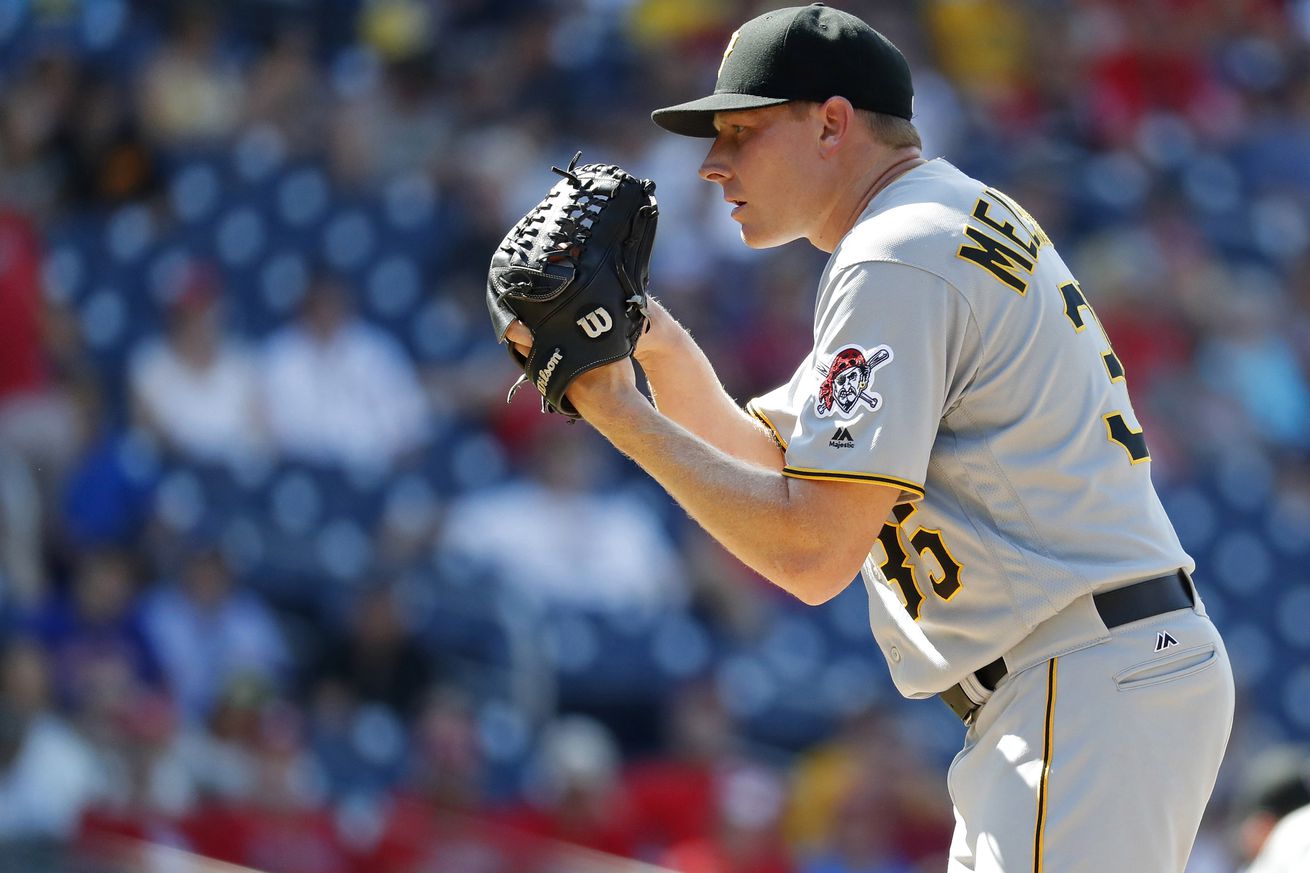Mark Melancon
I don't know how Pittsburgh Pirates fans are going to react to the club's trading closer Mark Melancon to the Washington Nationals with the Pirates just three games out of the second wild card, but I suspect not very well.
That's especially true when you consider that since 2013, Melancon has a 1.80 ERA, and Aroldis Chapman has a 2.03 ERA, and the Yankees got a high-upside shortstop prospect for Chapman, while the Pirates got reliever Felipe Rivero and his 4.53 ERA, plus minor league lefty Taylor Hearn.
The trade might smell of the Pirates' waving a white flag, but that's definitely not the case. The Pirates give up a great closer, but they picked up a good reliever in Rivero, who has better peripheral numbers than his ERA indicates. More importantly, the Pirates trade an impending free agent who was unlikely to get a qualifying offer; as a small-market team, they wouldn't want Melancon to accept what is projected to be a $16.7 million salary, too high a percentage of the team's payroll for one relief pitcher. Instead, they got a major league reliever who can step in and contribute and an interesting minor-league arm. With the odds of winning the wild card fairly small, the Pirates didn't want to keep Melancon and then lose him for nothing in the offseason.
The key for the Pirates will be how the current relievers transition into their new roles -- and whether they continue to pitch the way they have in July, when the Pirates bullpen has a 2.03 ERA. Tony Watson presumably takes over the closer role, with Neftali Feliz handling the primary setup role. Hard-throwing Arquimedes Caminero, Rivero and Jared Hughes handle the middle innings. Even without Melancon, it projects to be an above average bullpen the rest of the way. Pirates manager Clint Hurdle will continue to rely heavily on that bullpen because other than Gerrit Cole, Pirates starters have had trouble going deep into games.
Felipe Rivero
If Watson does the job as closer and the setup guys keep spinning zeroes, this trade could have no impact on the final number of wins for the Pirates. If Watson blows three saves, this trade could sting. It's also important to note that the Pirates are 9.5 games behind the Cubs and playing for a wild card -- not a division title. Going all-in for 2016 doesn't make sense when you're playing for what might be a one-game matchup against the Marlins' Jose Fernandez, Mets' Noah Syndergaard, Dodgers' Clayton Kershaw or Giants'Madison Bumgarner.
As for the comparison to the Chapman trade, that has to be considered an outlier -- not a deal that suddenly set a new market for relievers. The Pirates weren't going to get a top-25 prospect for Melancon, even if the difference between his value and Chapman's is minimal.
The Nationals lead the majors in bullpen ERA, but Jonathan Papelbon's recent struggles led to the desire for a reliable closer. Among the 24 relievers with at least 15 saves, Papelbon ranks 23rd in ERA, 23rd in batting average allowed and 18th in strikeout percentage. (Melancon ranks 17th -- one reason Chapman is perceived to have so much more value.) Papelbon simply doesn't have elite closer stuff. In fact, he should be shuffled deeper into the Nationals' bullpen -- not back to the eighth inning. Blake Treinen and Shawn Kelley have both pitched better and should get the higher-leverage roles.
For the Nationals, this deal is more about the postseason than needing Melancon to win the division. Their odds of winning the National League East were already greater than 90 percent. Considering there are rumors out there of Lucas Giolito for Andrew Miller, this deal for Melancon makes much more sense, as the Nationals got a reliever of similar quality without giving up a high-upside prospect.





